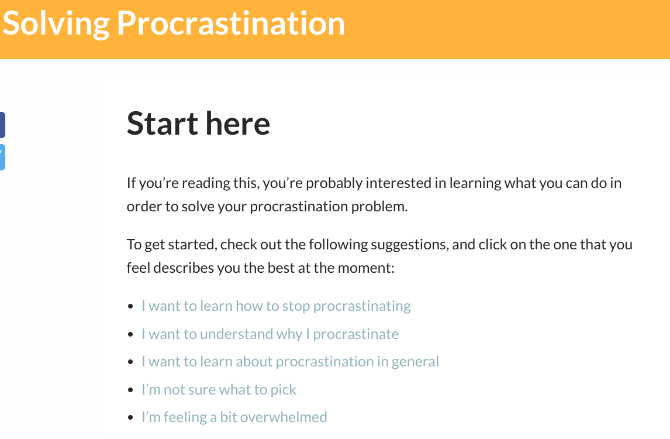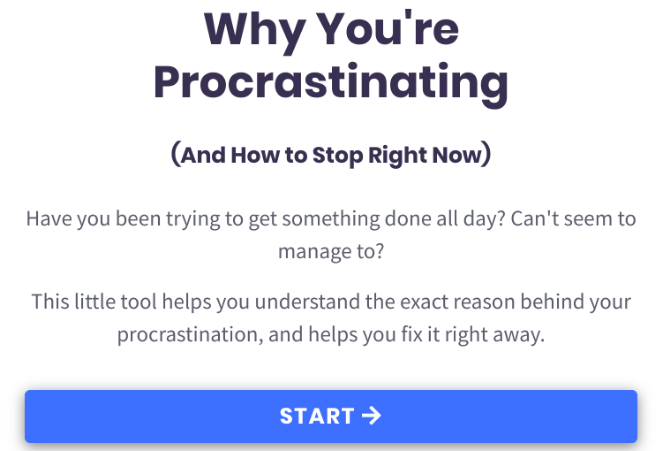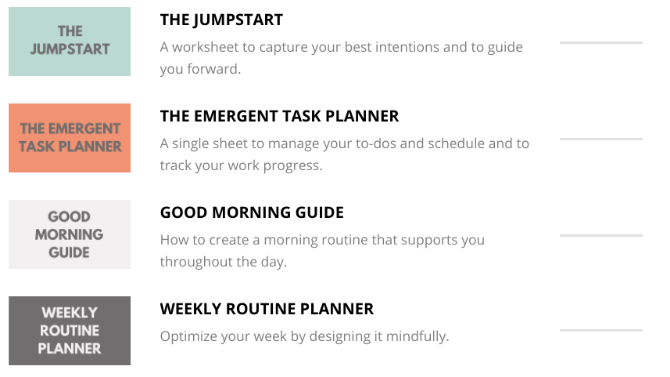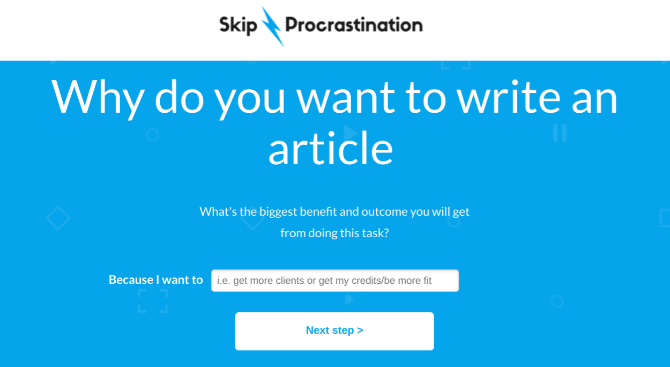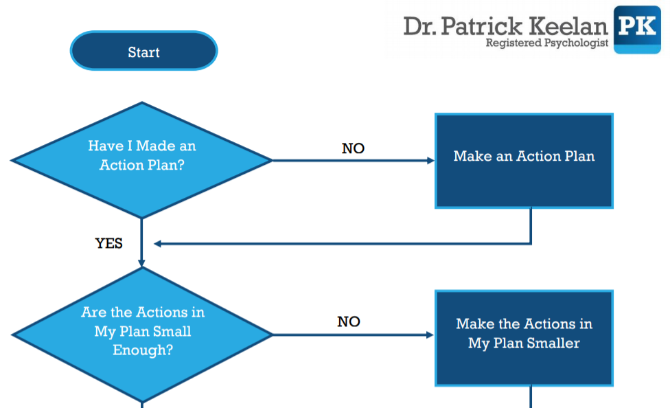One of the biggest obstacles to productivity is our tendency to procrastinate tasks. In fact, research shows that some people's brains are wired to make them procrastinate more than others. What is the science behind procrastination, and how do you scientifically beat it?
The internet, as usual, has all the answers. There are websites that sum up the science and research about procrastination in simple words. There are psychologists who publish articles on how to tackle it. And there are web apps based on these findings and advice. Once you have the knowledge and the tools, you are sure to stop procrastination in its tracks.
1. Solving Procrastination (Web): The Science Behind Procrastination
Researchers have been studying procrastination for a long time, and there are several studies published on the topic. Solving Procrastination turns all those years of knowledge into one easy-to-understand guide.
Click the "Start Here" button to choose between different things you can learn about procrastination, such as the reasons behind it, effective science-backed techniques to stop it, and even a way to counter feeling overwhelmed. The guides take great pains to turn scientific studies into simple English, while at the same time adding clear citations so you can check the original study it is based on.
The first step to tackling any problem is to understand it, and Solving Procrastination is a master at helping you understand why the human brain likes to procrastinate. You can even subscribe to a newsletter that sends you research-based tips on how to beat procrastination.
2. Why Do I Procrastinate (Web): Use the Procrastination Equation
Dr. Piers Steel came up with something he likes to call the Procrastination Equation. The core theory is that Motivation equals expectancy into value divided by impulsiveness into delay. You'll need to read the book to understand how to measure all of that. Or you can use this handy app.
Why Do I Procrastinate is a quiz based on Dr. Steel's Procrastination Equation. The web app, which also works on mobile browsers, presents you a series of statements to determine why you are procrastinating on a specific task. Pick a value from one to five to determine how much you agree with each statement.
Based on your responses, the app determines which of the four factors of the Procrastination Equation (expectancy, value, impulsiveness, or delay) is the core reason behind your dilly-dallying. And it also offers helpful advice on what you can do to counter that factor so you get things done.
3. Procrastination Coach (Web): Psychologist-Approved Free Tools
Clinical psychologist Dr. Christine Li has been studying procrastination for some time. Her findings and advice can be found in one place at the Procrastination Coach, along with some helpful free resources to tackle the problem.
While the site serves as a way for Dr. Li to sell her coaching programs, the blog offers interesting insights into the roots of procrastination, and strategies to overcome it. It isn't updated regularly but it already has plenty of posts to understand what's been our need to put things off till later.
You should definitely check out the Free Resources page, which requires you to sign up for an email newsletter. There are 12 tools here for different strategies, including worksheets, task planners, road map guides, brain dump templates, and more. There's also a free 5-day email course to beat the basics of this productivity killer.
4. Skip Procrastination (Web): Science-Backed App to Make You Act
Skip Procrastination is a webapp to use when you are currently procrastinating on a task but want to get moving on it. Based on scientific findings about the subject, the app takes you through a series of steps whose end result is to make you act.
The steps help your brain turn a task from "I should do this" into "I want to do this." It also clarifies the benefit of doing the task, as well as how much time it is likely to take. Based on the research that you are more likely to do something if you tell your friends you plan to do it, the app pushes you to tweet your goal. And finally, it adds a 25-minute time limit within which you have to take the first step to start your task.
All of these are principles you will likely learn about while reading about the science behind procrastination. Turning them into a single app, Skip Procrastination is the ideal tool to break out of that unproductive mindset when you are putting off a to-do list item.
5. Dr. Keelan's Flowchart (Web, Print): Step-by-Step Process to Beat Procrastination
Psychologist Dr. Patrick Keelan reckons that the key to beating procrastination is a step-by-step, logical approach. Based on science and his work with clients who struggle with the issue, Dr. Keelan created a flowchart that promises to help you push on.
The flowchart has four basic questions:
- Have I made an action plan?
- Are the actions in my plan small enough?
- Have I used the 5-minute rule when my motivation to take action is low?
- Have I addressed any rules driving my procrastination behavior?
It's important to read the full article explaining the flowchart so that you know the correct approach to complete each of these steps before moving on to the next one. Dr. Keelan recommends using it as an actual flowchart, which means that if the first step gets you over procrastination, forget about the further steps. Otherwise, go in the order of the flowchart, and you will start acting by the final step.
Download: Dr. Patrick Keelan's Flowchart to Overcome Procrastination (PDF)
Apps Help Beat Procrastination
A recent study by Cornell University found that anti-procrastination apps like focus boosters and distraction blockers are actually useful in beating the malady. Students who used the apps were more productive than those who relied on willpower alone.
With that in mind, try these new productivity apps to beat procrastination. It includes everything from reminders about resuming work to games that make you keep your phone away.


